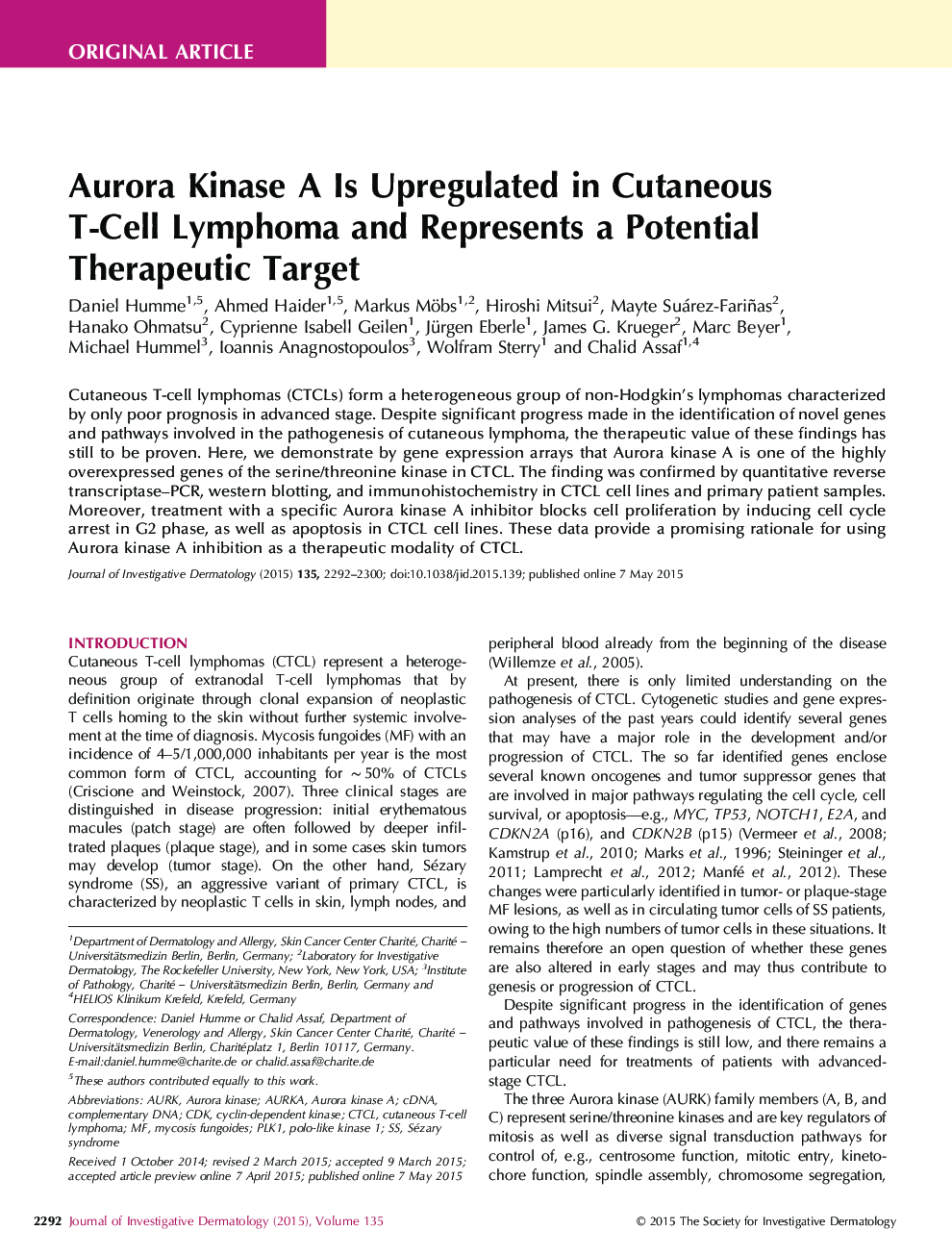| Article ID | Journal | Published Year | Pages | File Type |
|---|---|---|---|---|
| 3214964 | Journal of Investigative Dermatology | 2015 | 9 Pages |
Cutaneous T-cell lymphomas (CTCLs) form a heterogeneous group of non-Hodgkin’s lymphomas characterized by only poor prognosis in advanced stage. Despite significant progress made in the identification of novel genes and pathways involved in the pathogenesis of cutaneous lymphoma, the therapeutic value of these findings has still to be proven. Here, we demonstrate by gene expression arrays that Aurora kinase A is one of the highly overexpressed genes of the serine/threonine kinase in CTCL. The finding was confirmed by quantitative reverse transcriptase–PCR, western blotting, and immunohistochemistry in CTCL cell lines and primary patient samples. Moreover, treatment with a specific Aurora kinase A inhibitor blocks cell proliferation by inducing cell cycle arrest in G2 phase, as well as apoptosis in CTCL cell lines. These data provide a promising rationale for using Aurora kinase A inhibition as a therapeutic modality of CTCL.
